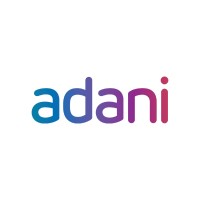Bangladesh's Risk Classification Shift: A Wake-Up Call for Exporters
September 11, 2024, 11:45 pm
Bangladesh has found itself in a precarious position. The ECGC, India's Export Credit Guarantee Corporation, has downgraded the country’s risk classification from “Moderately Low Risk” to “Moderate Risk.” This shift is not just a bureaucratic label; it carries significant implications for exporters and the economy.
The downgrade comes on the heels of political turmoil. Last month, violent protests led to a regime change. Such instability raises eyebrows. It makes investors and exporters think twice. The new classification means higher insurance premiums for exporters. When the risk goes up, so does the cost of doing business.
Yet, Bangladesh remains in the open cover category. This is a silver lining. Exporters can still obtain insurance more easily. It’s like having a safety net, albeit a frayed one. In FY2024, India exported $11.065 billion worth of goods to Bangladesh. This accounted for 2.53% of India’s total exports. The stakes are high.
The ECGC’s decision to downgrade is not taken lightly. They monitor developments closely. If conditions improve, they may reconsider. But for now, the focus is on the present. The ECGC has been active in Bangladesh, underwriting significant business. In FY23, Bangladesh was among the top five countries for ECGC. Other countries in this elite group include Cameroon, Laos, Nepal, and Saudi Arabia.
Bangladesh is a key player in the Indian Development and Economic Assistance Scheme. It accounts for about a quarter of the $32 billion in concessional Lines of Credit extended by India. This relationship is crucial. It’s a lifeline for many businesses. The ECGC provides various credit risk insurance covers. This includes export credit insurance for banks. It’s a way to bolster confidence in trade.
However, the recent downgrade raises questions. What does it mean for future investments? The political landscape is volatile. Investors crave stability. They want to know their money is safe. The ECGC’s actions signal caution. It’s a reminder that political events can ripple through economies.
The timing of this downgrade is significant. It comes as India pushes for greater economic ties with its neighbors. The semiconductor project in Maharashtra, for instance, is a bold move. The state government approved a $10 billion project by Tower Semiconductor and the Adani Group. This project aims to create 15,000 jobs. It’s a strategic play to position India as a manufacturing hub.
Maharashtra is not just focusing on semiconductors. The state is also nurturing electric vehicle (EV) manufacturing. Skoda Auto Volkswagen and Toyota Kirloskar Motor are setting up plants. These projects are expected to generate thousands of jobs. They signal a shift towards advanced manufacturing.
Yet, while Maharashtra is making strides, Bangladesh is facing challenges. The political upheaval has cast a shadow over its economic prospects. The ECGC’s downgrade is a wake-up call. Exporters must tread carefully. They need to assess risks and adjust strategies.
The relationship between India and Bangladesh is complex. It’s built on trade, investment, and mutual interests. But instability can strain these ties. The ECGC’s move is a reminder that the business environment is not static. It can change overnight.
For exporters, this means vigilance. They must stay informed about political developments. They need to understand the implications of risk classifications. The cost of insurance is just one piece of the puzzle. There are broader economic factors at play.
As Bangladesh navigates this turbulent period, it must also look to the future. The country has potential. It has a young workforce and a growing market. But it needs stability to attract investment. The ECGC’s downgrade is a setback, but it’s not the end.
Bangladesh can bounce back. It must focus on strengthening its political institutions. It needs to foster an environment conducive to business. This means addressing concerns about governance and stability.
In conclusion, the ECGC’s downgrade of Bangladesh’s risk classification is a significant event. It highlights the interconnectedness of politics and economics. For exporters, it’s a call to action. They must adapt to changing circumstances. The road ahead may be rocky, but with resilience and strategic planning, Bangladesh can navigate these challenges. The future is uncertain, but it’s not without hope.
The downgrade comes on the heels of political turmoil. Last month, violent protests led to a regime change. Such instability raises eyebrows. It makes investors and exporters think twice. The new classification means higher insurance premiums for exporters. When the risk goes up, so does the cost of doing business.
Yet, Bangladesh remains in the open cover category. This is a silver lining. Exporters can still obtain insurance more easily. It’s like having a safety net, albeit a frayed one. In FY2024, India exported $11.065 billion worth of goods to Bangladesh. This accounted for 2.53% of India’s total exports. The stakes are high.
The ECGC’s decision to downgrade is not taken lightly. They monitor developments closely. If conditions improve, they may reconsider. But for now, the focus is on the present. The ECGC has been active in Bangladesh, underwriting significant business. In FY23, Bangladesh was among the top five countries for ECGC. Other countries in this elite group include Cameroon, Laos, Nepal, and Saudi Arabia.
Bangladesh is a key player in the Indian Development and Economic Assistance Scheme. It accounts for about a quarter of the $32 billion in concessional Lines of Credit extended by India. This relationship is crucial. It’s a lifeline for many businesses. The ECGC provides various credit risk insurance covers. This includes export credit insurance for banks. It’s a way to bolster confidence in trade.
However, the recent downgrade raises questions. What does it mean for future investments? The political landscape is volatile. Investors crave stability. They want to know their money is safe. The ECGC’s actions signal caution. It’s a reminder that political events can ripple through economies.
The timing of this downgrade is significant. It comes as India pushes for greater economic ties with its neighbors. The semiconductor project in Maharashtra, for instance, is a bold move. The state government approved a $10 billion project by Tower Semiconductor and the Adani Group. This project aims to create 15,000 jobs. It’s a strategic play to position India as a manufacturing hub.
Maharashtra is not just focusing on semiconductors. The state is also nurturing electric vehicle (EV) manufacturing. Skoda Auto Volkswagen and Toyota Kirloskar Motor are setting up plants. These projects are expected to generate thousands of jobs. They signal a shift towards advanced manufacturing.
Yet, while Maharashtra is making strides, Bangladesh is facing challenges. The political upheaval has cast a shadow over its economic prospects. The ECGC’s downgrade is a wake-up call. Exporters must tread carefully. They need to assess risks and adjust strategies.
The relationship between India and Bangladesh is complex. It’s built on trade, investment, and mutual interests. But instability can strain these ties. The ECGC’s move is a reminder that the business environment is not static. It can change overnight.
For exporters, this means vigilance. They must stay informed about political developments. They need to understand the implications of risk classifications. The cost of insurance is just one piece of the puzzle. There are broader economic factors at play.
As Bangladesh navigates this turbulent period, it must also look to the future. The country has potential. It has a young workforce and a growing market. But it needs stability to attract investment. The ECGC’s downgrade is a setback, but it’s not the end.
Bangladesh can bounce back. It must focus on strengthening its political institutions. It needs to foster an environment conducive to business. This means addressing concerns about governance and stability.
In conclusion, the ECGC’s downgrade of Bangladesh’s risk classification is a significant event. It highlights the interconnectedness of politics and economics. For exporters, it’s a call to action. They must adapt to changing circumstances. The road ahead may be rocky, but with resilience and strategic planning, Bangladesh can navigate these challenges. The future is uncertain, but it’s not without hope.

